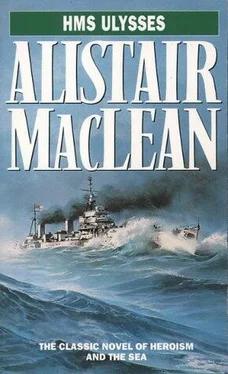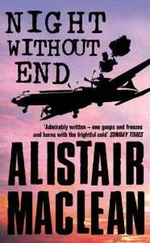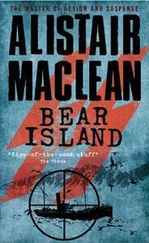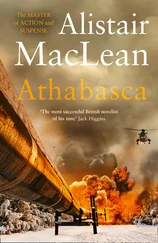Alistair MacLean - HMS Ulysses
Здесь есть возможность читать онлайн «Alistair MacLean - HMS Ulysses» — ознакомительный отрывок электронной книги совершенно бесплатно, а после прочтения отрывка купить полную версию. В некоторых случаях можно слушать аудио, скачать через торрент в формате fb2 и присутствует краткое содержание. Жанр: prose_military, на английском языке. Описание произведения, (предисловие) а так же отзывы посетителей доступны на портале библиотеки ЛибКат.
- Название:HMS Ulysses
- Автор:
- Жанр:
- Год:неизвестен
- ISBN:нет данных
- Рейтинг книги:3 / 5. Голосов: 1
-
Избранное:Добавить в избранное
- Отзывы:
-
Ваша оценка:
- 60
- 1
- 2
- 3
- 4
- 5
HMS Ulysses: краткое содержание, описание и аннотация
Предлагаем к чтению аннотацию, описание, краткое содержание или предисловие (зависит от того, что написал сам автор книги «HMS Ulysses»). Если вы не нашли необходимую информацию о книге — напишите в комментариях, мы постараемся отыскать её.
HMS Ulysses — читать онлайн ознакомительный отрывок
Ниже представлен текст книги, разбитый по страницам. Система сохранения места последней прочитанной страницы, позволяет с удобством читать онлайн бесплатно книгу «HMS Ulysses», без необходимости каждый раз заново искать на чём Вы остановились. Поставьте закладку, и сможете в любой момент перейти на страницу, на которой закончили чтение.
Интервал:
Закладка:
Riley was back inside a minute. He came back with that same awkward crab-like run, carrying a three-pint Thermos jug and two cups, cursing fluently and often as he slipped against the wall. Panting, wordlessly, he sat down beside Dodson, poured out a cup of steaming coffee. "Why the hell did you have to come back?" Dodson demanded harshly. "I don't want you and------"
"You wanted coffee," Riley interrupted rudely. "You've got the bloody stuff. Drink it."
At that instant the explosion and the vibration from the explosion in the port tubes echoed weirdly down the dark tunnel, the shock flinging the two men heavily against each other. His whole cup of coffee splashed over Dodson's leg: his mind was so tired, his reactions so slow, that his first realisation was of how damnably cold he was, how chill that dripping tunnel. The scalding coffee had gone right through his clothes, but he could feel neither warmth nor wetness: his legs were numbed, dead below the knees. Then he shook his head, looked up at Riley.
"What in God's name was that? What's happening? Did you------?"
"Haven't a clue. Didn't stop to ask." Riley stretched himself luxuriously, blew on his steaming coffee. Then a happy thought struck him, and a broad cheerful grin came as near to transforming that face as would ever be possible. "It's probably the Tirpitz," he said hopefully.
Three times more during that terrible night, the German squadrons took off from the airfield at Alta Fjord, throbbed their way nor'-nor'-west through the bitter Arctic night, over the heaving Arctic sea, in search of the shattered remnants of FR77. Not that the search was difficult-the Focke-Wulf Condor stayed with them all night, defied their best attempts to shake him off. He seemed to have an endless supply of these deadly flares, and might very well have been-in fact, almost certainly was-carrying nothing else. And the bombers had only to steer for the flares.
The first assault, about 0545, was an orthodox bombing attack, made from about 3,000 feet. The planes seemed to be Dorniers, but it was difficult to be sure, because they flew high above a trio of flares sinking close to the water level. As an attack, it was almost but not quite abortive, and was pressed home with no great enthusiasm. This was understandable: the barrage was intense. But there were two direct hits, one on a merchantman, blowing away most of the foc'sle, the other on the Ulysses. It sheered through the flag deck and the Admiral's day cabin, and exploded in the heart of the Sick Bay. The Sick Bay was crowded with the sick and dying, and, for many, that bomb must have come as a God-sent release, for the Ulysses had long since run out of anaesthetics. There were no survivors. Among the dead was Marshall, the Torpedo Officer, Johnson, the Leading S.B.A., the Master-At-Arms who had been lightly wounded an hour before by a splinter from the torpedo tubes, Burgess, strapped helplessly in a strait-jacket-he had suffered concussion on the night of the great storm and gone insane. Brown, whose hip had been smashed by the hatch cover of 'Y' magazine, and Brierley, who was dying anyway, his lungs saturated and rotted away with fuel oil.
Brooks had not been there.
The same explosion had also shattered the telephone exchange: barring only the bridge-gun phones, and the bridge-engine phones and speaking-tubes, all communication lines in the Ulysses were gone.
The second attack at 7 a.m., was made by only six bombers, Heinkels again, carrying glider-bombs. Obviously flying strictly under orders, they ignored the merchantmen and concentrated their attack solely on the cruisers. It was an expensive attack: the enemy lost all but two of their force in exchange for a single hit aft on the Stirling, a hit which, tragically, put both after guns out of action.
Turner, red-eyed and silent, bareheaded in that sub-zero wind, and pacing the shattered bridge of the Ulysses, marvelled that the Stirling still floated, still fought back with everything she had. And then he looked at his own ship, less a ship, he thought wearily, than a floating shambles of twisted a steel still scything impossibly through those heavy seas, and I marvelled all the more. Broken, burning cruisers, cruisers ravaged and devastated to the point of destruction, were nothing new for Turner: he had seen the Trinidad and the Edinburgh being literally battered to death on these same Russian convoys. But he had never seen any ship, at any time, take such inhuman, murderous punishment as the Ulysses and the obsolete Stirling and still live. He would not have believed it possible.
The third attack came just before dawn. It came with the grey half-light, an attack carried out with great courage and the utmost determination by fifteen Heinkel 111 gldder-bombers. Again the cruisers were the sole targets, the heavier attack by far being directed against the Ulysses. Far from shirking the challenge and bemoaning their ill-luck the crew of the Ulysses, that strange and selfless crew of walking zombies whom Nicholls had left behind, welcomed the enemy gladly, even joyfully, for how can one kill an enemy if he does not come to you? Fear, anxiety, the near-certainty of death-these did not exist.
Home and country, families, wives and sweethearts, were names, only names: they touched a man's mind, these thoughts, touched it and lifted and were gone as if they had never been. "Tell them," Vallery had said, "tell them they are the best crew God ever gave a captain." Vallery.
That was what mattered, that and what Vallery had stood for, that something that had been so inseparably a part of that good and kindly man that you never saw it because it was Vallery. And the crew hoisted the shells, slammed the breeches and squeezed their triggers, men uncaring, men oblivious of anything and everything, except the memory of the man who had died apologising because he had let them down, except the sure knowledge that they could not let Vallery down. Zombies, but inspired zombies, men above themselves, as men commonly are when they know the next step, the inevitable step has them clear to the top of the far side of the valley...
The first part of the attack was launched against the Stirling. Turner saw two Heinkels roaring in in a shallow dive, improbably surviving against heavy, concentrated fire at point-blank range. The bombs, delayed action and armour-piercing, struck the Stirling amidships, just below deck level, and exploded deep inside, in the boiler-room and engineroom. The next three bombers were met with only pom-pom and Lewis fire: the main armament for'ard had fallen silent. With sick apprehension, Turner realised what had happened: the explosion had cut the power to the turrets [4] It is almost impossible for one single explosion, or even several in the same locality, to destroy or incapacitate all the dynamos in a large naval vessel, or to sever all the various sections of the Ring Main, which carries the power around the ship. When a dynamo or its appropriate section of the Ring Main suffered damage, the interlinking fuses automatically blew, isolating the damaged section. Theoretically, that is. In practice, it does not always happen that way-the fuses may not rupture and the entire system breaks down. Rumour-very strong rumour-had it that at least one of H.M. capital ships was lost simply because the Dynamo Fuse Release Switches-fuses of the order of 800 amps failed to blow, leaving the capital ship powerless to defend itself.
.
Ruthlessly, contemptuously almost, the bombers brushed aside the puny opposition: every bomb went home. The Stirling, Turner saw, was desperately wounded. She was on fire again, and listing heavily to starboard.
The suddenly lifting crescendo of aero engines spun Turner round to look to his own ship. There were five Heinkels in the first wave, at different heights and approach angles so as to break up the pattern of A.A. fire, but all converging on the after end of the Ulysses. There was so much smoke and noise that Turner could only gather confused, broken impressions. Suddenly, it seemed, the air was filled with glider-bombs and the tearing, staccato crash of the German cannon and guns. One bomb exploded in mid-air, just for'ard of the after funnel and feet away from it: a maiming, murderous storm of jagged steel scythed across the boat-deck, and all Oerlikons and the pom-poms fell immediately silent, their crews victim to shrapnel or concussion.
Читать дальшеИнтервал:
Закладка:
Похожие книги на «HMS Ulysses»
Представляем Вашему вниманию похожие книги на «HMS Ulysses» списком для выбора. Мы отобрали схожую по названию и смыслу литературу в надежде предоставить читателям больше вариантов отыскать новые, интересные, ещё непрочитанные произведения.
Обсуждение, отзывы о книге «HMS Ulysses» и просто собственные мнения читателей. Оставьте ваши комментарии, напишите, что Вы думаете о произведении, его смысле или главных героях. Укажите что конкретно понравилось, а что нет, и почему Вы так считаете.












